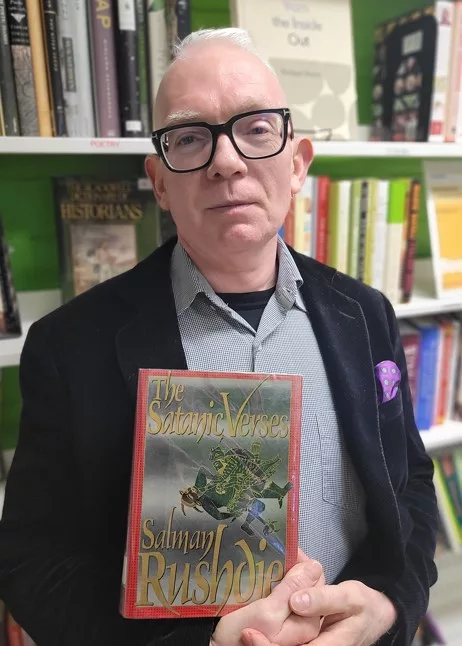Gold Mine Processing Manager, Kelly Noble, recommends The Satanic Verses by Salman Rushdie.

The Satanic Verses by Salman Rushdie is one of the most controversial novels ever written. The author, translators, and publishers have all been under constant death threats since its publication in 1988. Some, including the author, have been physically attacked. Others in the publishing business have been murdered. Yet the novel is one of Rushdie’s best creative works. It is full of magical realism, funny characters, and many interwoven subplots.
The novel has many underlining themes common in multicultural societies—ideas around personal identity, alienation, rootlessness, non-toleration, police brutality, and conformity. The book is also a critique of not just Islamic religion but religion in general.
Rushdie uses magical realism to craft many sub-plots within the main text. He tells of the early days of Muhammad and his attempts to bring the word of God to Mecca, and he crafts another tale of a young Indian girl leading her village on a pilgrimage to Mecca across the Arabian Sea. These tales show up as dreams the two many characters have throughout the novel. In both cases, Rushdie parodies the human side of religion and it’s reaction to absolute, unquestionable tenets of religious belief.
Rushdie’s storytelling ability and use of the English language are extraordinary. He has crafted a fictional narrative around a historical text, and he has done so extremely well.
The story is entertaining, and I believe most Western readers would take no offense to his portrayal of the silliness and extremism of religion. I will concede that some fringe groups may find the story a bit condescending. Even so, all readers must confront the reality that literature portrays a human existence. Religion does not always look good in the eyes of the faithful especially when God expects inhuman traits in his believers. An example of this occurs when a newborn child is left at a masque. The chief priest calls it a devil child and says it must be killed. So, the faithful stone the baby to death. When some of the villagers question this action, the group leader responds by quoting religious texts saying, “Much will be asked from you.” It is extreme demands like this that may make religion unpalatable and distasteful.
I believe Rushdie has crafted an excellent novel about obscure, historical verses that are not found in the Koran. He bases his story on verses that are discussed only in historical texts. Islamic scholars question whether these texts are authentic to start with-sighting that they are not mentioned at all by Mohammed’s biographers. Rushdie’s storytelling ability and use of the English language are extraordinary. He has crafted a fictional narrative around a historical text, and he has done so extremely well.
